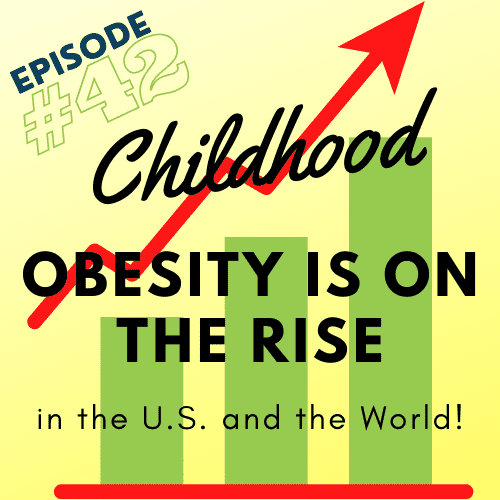Podcast Audio Player
18WT 042: Children and Obesity - Childhood Obesity is on the Rise in the U.S. and the World
Show Note Links!
From the audio podcast
- Allswell Mattress - Your dream bed and more starts - HERE
- Instacart - Groceries and more delivered in as little as 2 hours
- Have the mid afternoon energy slump - Try a C4 Energy Drink
- To get your swag on and support the show... just click HERE
- Help support our show by joining our patreon - Just click HERE
- Get your CoVid Shot Glasses HERE
Leaving us a review on iTunes really help out the show.
18WT 042: CHILDREN AND OBESITY/ CHILDHOOD OBESITY IS ON THE RISE IN THE U.S. & THE WORLD
- The scales don’t lie: Many American kids spent the last year of remote learning being more sedentary and eating their feelings
- The hardest hit, has been children ages 5 to 11, who gained an average of more than five pounds, adjusted for height, according to the journal of American medicine (JAMA)
- For the average 5-year-old (about 40 pounds), that’s a 12.5 percent weight gain.
- For the average 11-year-old (about 82 pounds), it’s a 6 percent weight gain
- Pre- pandemic, about 36 percent of 5- to 11-year-olds were considered overweight or obese, and that increased to 45.7 percent.
- Kaiser Permanente Southern California electronic health record data from nearly 200,000 children ages 5 to 17 to track weight gain during the pandemic, is considered one of the largest of its kind, and Significant weight gain occurred during the covid-19 pandemic among youths, especially the younger ones.
- The change was in a very short period of time,” said Barry Popkin, an obesity researcher at the School of Public Health at the University of North Carolina at Chapel Hill.
- He added that about 15 other studies in both high- and low-income countries reflect a similar trend, when it comes to pandemic-spurred obesity in children.
- Before the coronavirus, studies showed that students tended to gain weight during the summer when away from school, said Lorrene Ritchie, a nutrition policy specialist in Berkeley, Calif.
- Ritchie said that companies selling junk food have had more access during the pandemic to market directly to children who spent more time on screens.
- During normal school years children lose some of the summer weight. This happens from school nutrition programs combined with encouraged physical activity such as recess and gym classes.
- Another study by the CDC looked at 432,302 children from ages 2-19. They found that obesity was at 22%, compared with 19% before the pandemic.
- Two other studies backed these findings up
- All of them came to the same conclusion : there needs to be better screening by health care providers for BMI, food security, and social determinants of health, increased access to evidence-based pediatric weight management programs and food assistance resources, and state, community, and school resources to facilitate healthy eating, physical activity, and chronic disease prevention, such as Type 2 diabetes.
Some helpful links in AZ:
AZ Way to Go
azwaytogo.org
An obesity-prevention website created by the Arizona Chapter of the American
Academy of Pediatrics Obesity Committee to provide resources to clinicians and
families in both English and Spanish. Lots of great printable sheets of
information and even stickers.
Arizona Nutrition Network
eatwellbewell.org
Online games, videos and activities for children (in English and Spanish) with
a focus on health and nutrition. Section for parents (also in English and
Spanish) provides information on how nutrition and physical activity can help
you and your family.
Banner Children’s
602-747-2528 • bannerhealth.com
Go Kids! is a free program that gives kids and families the tools and resources
they need to maintain fun, active lives while making healthy choices to improve
their overall fitness.
NATIONWIDE PROGRAMS TO HELP:
BMI Index
Baylor College of Medicine has a BMI calculator tool that allows you to plug in your
child’s age, height (in inches) and weight so you can determine your child’s
percentile rank. According to the site, any child ranking above the 85th
percentile should be evaluated by a health professional.
Centers for Disease Control
cdc.gov/healthyyouth/obesity
Offers data and statistics, science-based strategies, policy information and
national, state and local programs.
https://www.healthiergeneration.org/
In partnership with the President Bill Clinton Foundation
World Obesity is a not-for-profit organization linking over 50 regional and national associations with over 10,000 professional members in scientific, medical and research organizations. It is an umbrella organization for national obesity associations which comprises 52 member associations, representing 56 countries.
W. VIRGINIA : https://www.inova.org/inova-community/community-partnerships/childhood-obesity-prevention

